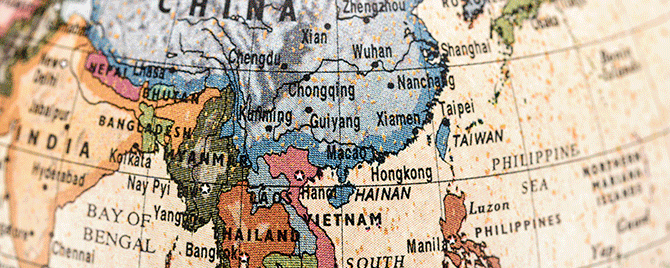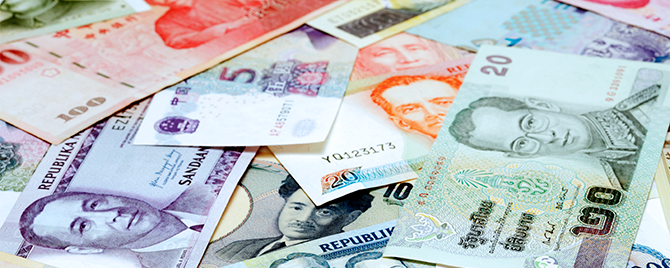Pacific Exchange
-

China’s New Normal Is in the Making
“China’s economy has entered a state of new normal – the gear of growth is shifting from high speed to medium-to-high speed,” said Chinese Premier Li Keqiang at the World Economic Forum in Davos earlier this year. Indeed, after two decades of double-digit growth, the Chinese economy is shifting into a lower gear. According to official statistics released earlier this month, the economy expanded at 7 percent in real terms in the second quarter of 2015.
-

Firing the Fourth Arrow: The Private Sector and the Future of Japan
On June 15, 2015, the Federal Reserve Bank of San Francisco hosted an Asia Financial Forum entitled Firing the Fourth Arrow: The Private Sector and the Future of Japan. The event featured a panel of Japan experts, including Michael Chui, Partner, McKinsey Global Institute, Tasuku Kuwabara, Principal, McKinsey & Company, and moderator Sean Creehan, Japan […]
-

Asian Banks Go Global
One of the most striking trends following the global financial crisis has been the slowdown and retrenchment of cross-border lending. Due to financial distress, many large global banks, particularly those from Europe, had to reduce their international exposure and pull back funding to their home markets.
-

Financial Sector Assessment Program: A “Report Card” for Bank Supervision in Asia
One of the functions of the Financial Sector Assessment Program (FSAP) is to issue a “report card” for an economy’s compliance with the Basel Core Principles for Effective Banking Supervision (BCP). Since the FSAP’s inception in 1999, many economies have undergone the assessment which is conducted jointly by the World Bank and the International Monetary Fund (IMF).
-

Asia’s Corporate Debt Poses Risks as Dollar Climbs
Companies across emerging markets issued a record $276 billion in U.S. dollar-denominated bonds in 2014 as they took advantage of low U.S. interest rates, and Asian corporates were no exception. Combined with the strengthening dollar, high levels of dollar-denominated debt increase risks to Asian banking asset quality, particularly when borrowers leave foreign exchange risk unhedged. Asia has made substantial progress building financial system resilience and foreign exchange reserves over the past two decades, but external debt still poses risks for many countries including India, Indonesia, and even China.
-

How Transparent are Asian Sovereign Wealth Funds?
Sovereign wealth funds are special-purpose investment funds owned by a national government. Over the past decade, these funds have grown rapidly and now play an important role in the global financial system. This was particularly evident during the global financial crisis, when investment decisions by these funds had a large impact on global financial markets. The newfound prominence of sovereign wealth funds has led to calls for greater transparency and accountability and the establishment of best practice guidelines.
-

Welcome to Pacific Exchange
We are pleased to announce the launch of Pacific Exchange, a new blog from the Federal Reserve Bank of San Francisco focused on financial and banking developments in Asia. Written by the analysts of our Country Analysis Unit, Pacific Exchange will provide timely analysis on the most important trends in the Asia Pacific in a format accessible to a broad audience.